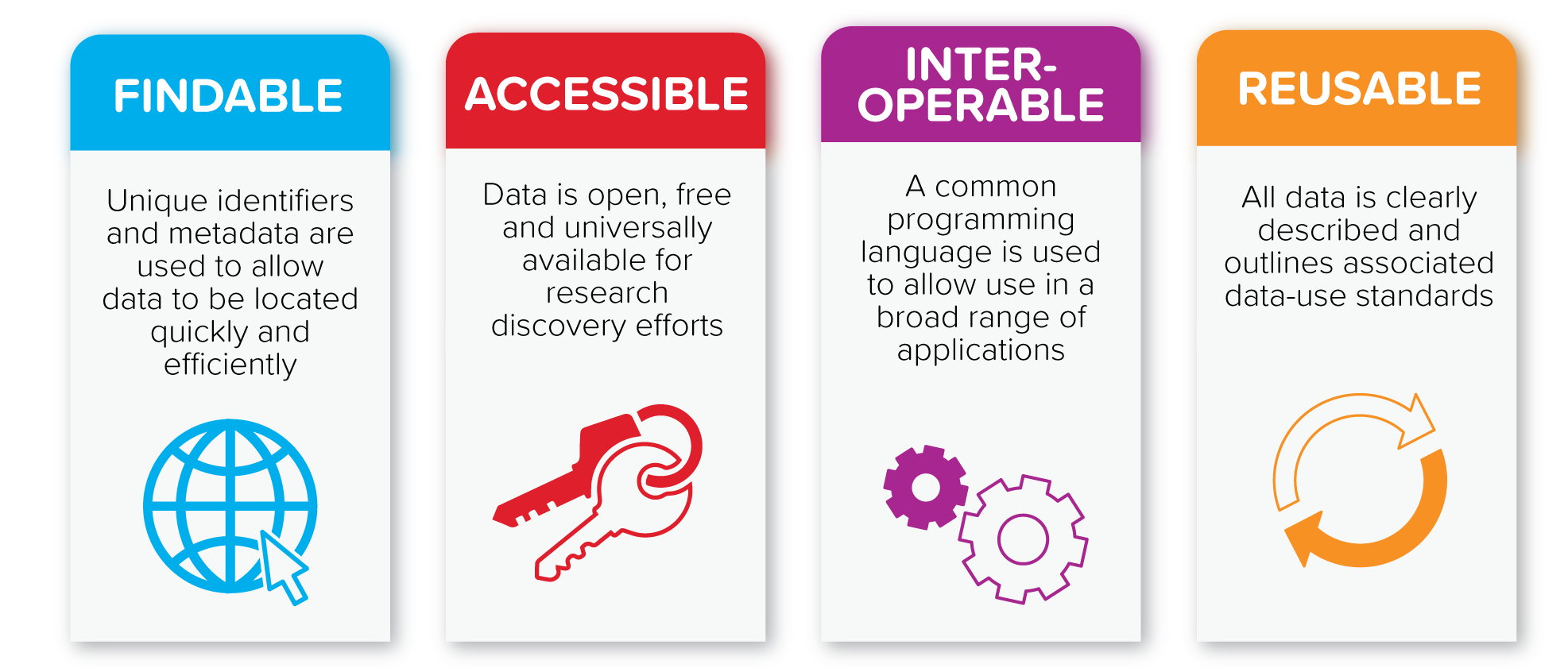Why Establish a Data Resource Center?
Historically, genomic data was analyzed and stored in individual investigators' local computing environments. The volume of genomic data generated by Kids First, however, often exceeds local genomic data storage/analysis solutions traditionally practiced in academic research and requires new technologies, resources, and user-specific environments to be able to store, access, compute, integrate, and share data. The DRC resolves the following issues related to scaling genomic data including:
-
Moving large amounts of data from one location to another is costly and time-consuming.
-
Only a few academic and commercial institutions are capable of efficiently storing and computing across such large-scale genomic data limiting the required diverse and multidisciplinary input required to advance research rapidly.
-
Data becomes siloed and cannot be easily integrated across diseases or shared with and accessed by external collaborators, resulting in duplication of efforts .
Kids First Makes Collaboration Possible
The DRC makes data generated by Kids First accessible to both the research and patient communities. Researchers will be able to easily combine/compare datasets for cross-dataset analyses to identify the genetic pathways that underlie childhood cancer and structural birth defects.

FAIR Data
All data stored within the Kids First Data Resource Center aligns with FAIR data principles and procedures (Findable, Accessible, Interoperable, Reusable). The Kids First Data Resource Center is an integrated initiative of the NIH Data Commons and supports the National Institutes of Health's mandate for a empowered data stewardship and secondary use of research data that maximizes and accelerates data use, access, and shared discovery while ensuring all core NIH standards & established data use and security policies are fully met.
Benefits of Data Sharing
The Kids First DRC is committed to providing secure, transparent, and convenient data access to empower discoveries by researchers and clinicians across the globe. Sharing data in a cloud-based portal allows the data shared by patient families to contribute to the improved care and treatment of other children diagnosed with cancer or structural birth defects. This network of information also allows researchers to share best practices and methods for treating patients. Data sharing within the Kids First DRC will accelerate research and may lead to the development of more effective treatments for all children diagnosed with a genetic disease.
The DRC is available to researchers from across the entire biomedical research community to access Kids First data and uncover new insights into the biology of childhood cancer and structural birth defects or to develop new computational methods for analyzing genetic data. The Kids First Data Resource will also be available for researchers to use in their own studies supported by other public and private funding sources.
- Sharing data:
- Enables data generated for a given study(s) to be used to explore a wide range of additional research questions.
- Increases statistical power by combining separate datasets and increasing sample size.
- Allows validation and reproducibility of research results and methods.
- Promotes innovation of methods and tools for research.
- Facilitates development of improved therapeutic and diagnostic strategies for patients.
- Allows researchers to collaborate across the globe and across a range of expertise.